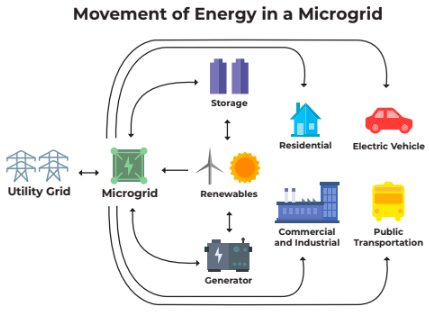As a city dweller in #Oregon, you probably haven’t thought twice about your ease of access to #energy. But with around 35% of Oregonians living in non-urban areas, many citizens cannot even hook up to the main grid cheaply or sustainably. @arrempel (1/15)
Estimates show that the cost to extend utility distribution lines to remote locations can be up to $60,000 a mile. But citizens living in remote locations are typically of lower socioeconomic classes or in native tribes. @IndianCountry @NCAI1944 (2/15)
https://rmi.org/blog_2014_06_24_native_energy_rural_electrification_on_tribal_lands/">https://rmi.org/blog_2014... (3/15)
In fact, nearly 900,000 acres of Oregon are tribal land typically in remote areas, making it difficult for a historically underserved and discriminated population of people to access #electricity and a decent quality of life. (4/15)
https://olis.leg.state.or.us/liz/2013I1/Downloads/CommitteeMeetingDocument/41006">https://olis.leg.state.or.us/liz/2013I... (5/15)
So clearly, something so simple, such as access to #electricity, is actually widely inaccessible to two vulnerable populations: native americans and poorer classes. That’s why democratically owned #microgrids are the equitable solution. @TransitionJust (6/15)
#Microgrids are independent small-scale grids that can be used on a residential level energy creation and #energystorage. This is extremely valuable to rural communities that cannot easily connect to the main grid. (7/15)
Blue Lake Rancheria is a native Californian tribe that installed a #microgrid completely funded by a state grant and community profits. So cost should not be a barrier to most communities. @blr_tribe (8/15)
https://www.pressdemocrat.com/news/10536083-181/blue-lake-rancheria-tribes-microgid">https://www.pressdemocrat.com/news/1053... (9/15)
Once paid off, #microgrids become extremely economical: Blue Lake Rancheria saves around $200,000 annually in energy costs. Plus, extra #energy can be sold back to the main grid for profit. (10/15)
https://ww2.energy.ca.gov/2019publications/CEC-500-2019-011/CEC-500-2019-011.pdf">https://ww2.energy.ca.gov/2019publi... (11/15)
When implemented on a neighborhood level, microgrids give people agency over the management, regulation, and distribution of their #energy. This empowers the citizens and means less energy is wasted, as it is customized to each community. #sustainable(12/15)
Also, small scale communities have less regulations and resistance towards implementing #solar panels or small #wind turbines, meaning microgrids can implement #renewables much easier than district-level grids. (13/15)
Environmental justice is something we should all care about and sustainable access to energy is something we should all have if desired. That’s why we need urban citizens, like you, supporting microgrids financially and ideologically. @TransitionJust (14/15)
#Microgrids are not only an invaluable step towards environmental justice but also progress towards #sustainability. RT this thread to spread awareness about the unjust distribution of energy in Oregon. (15/15)

 Read on Twitter
Read on Twitter



